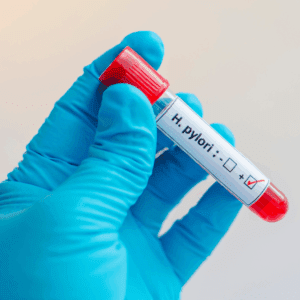Dr. Shria Kumar, Assistant Professor of Medicine at the University of Miami’s Sylvester Comprehensive Cancer Center, explains how patients from underrepresented communities can access stomach cancer clinical trials and innovative treatments. She shares practical steps to ask the right questions, connect with NCI-designated centers, and partner with advocacy groups like Debbie’s Dream and Hope for Stomach Cancer to overcome barriers to participation. Learn more about Dr. Shria Kumar here.
Related Resources
Transcript
Lisa Hatfield:
Dr. Kumar, innovative treatments like immunotherapies and targeted drugs often become available first through clinical trials. Given your research on disparities in cancer care, what practical steps can patients from underrepresented communities take to learn about and access clinical trials? And what key questions should they ask to ensure they’re considered for trials that might benefit them?
Dr. Shria Kumar:
Absolutely. You know, on an individual level, I would encourage every patient to do a few things. The first is to ask directly and ask early, so that your oncologist is also thinking about it. If you are in a position where you don’t need a clinical trial at this point, and the present first-line therapy has excellent cure rates, maybe it’s not the right setting for you right now, but it’s something that you can think about on a rolling basis.
Second, I would say to connect with major cancer centers, as we talked about earlier. The major cancer centers are the ones that are most aware of clinical trials themselves and can ensure that you are fully up-to-date, so you know what’s available to you.
There are websites, such as clinicaltrials.gov and other National Cancer Institute or NCI-associated websites that talk about what clinical trials are available for various cancer types. They can be a little bit difficult to parse through, but if patients are interested, I would encourage them to look at those websites themselves as well.
And the last thing I would say, which I think is the most important, is to get support. There are patient navigators and advocacy groups that can help with the whole process, including guiding patients through looking through these myriad numbers of clinical trials, or reminding patients to look through trials. To name a few: Debbie’s Dream, Hope for Stomach Cancer, Gastric Cancer Foundation, and No Stomach for Cancer are among the many organizations out there to help patients navigate the process.
Lisa Hatfield:
And stepping back a little bit, so if a patient does learn about clinical trials, maybe they aren’t being done in their particular city. What would that look like? Because I know that financial barriers, geographic barriers, that can really create issues for some patients to get access to these clinical trials.
Dr. Shria Kumar:
Absolutely, and this really varies on an individual level. There are initiatives to have community-based oncology practices enroll in clinical trials. There are cooperative groups that are dedicated to this, to make sure that it’s not just the main flagship location of large cancer centers that have access to clinical trials.
Because as you said, it is difficult for patients, for their family members, to be away from home or to travel long distances very frequently. It really depends on what clinical trial it is, what the tumor type is, and what the scenario is. But I would really encourage people to get multiple opinions.
If your oncologist agrees that a clinical trial is reasonable, you can get these telehealth or virtual consultations with these larger cancer centers. Again, for any options where there are community-based sites that are able to conduct these clinical trials, or you’re able to get the treatment in a way that can minimize disruptions, it could be exceptionally helpful.
One of the things that I think is also important is interfacing with these patient advocacy groups. They have financial resources as well as access to clinical trials and access to experts that can help navigate you through these potential barriers to receiving either targeted treatments or clinical trial enrollment.



